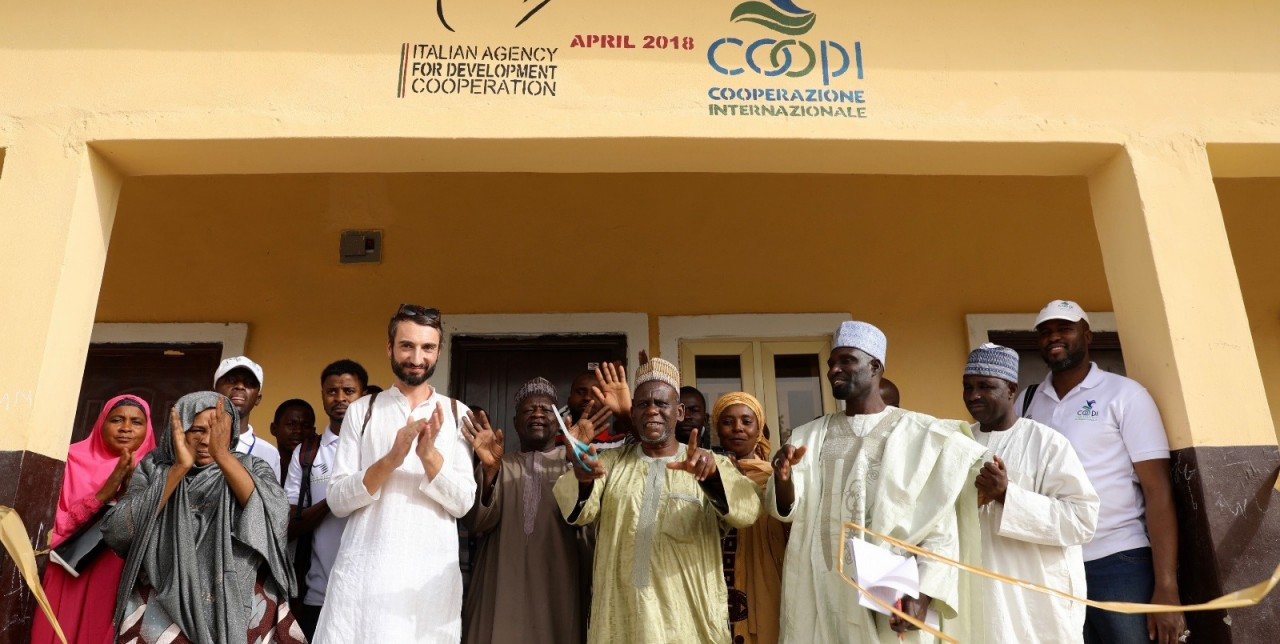10-04-2018 | di COOPI
Nigeria: new schools, back to normalcy
With the completion of the “Intervention to extend access to formal and non-formal education of quality and psychosocial support for school children at host families and displaced communities in the urban area of Maiduguri (Nigeria)” , financed by AICS (the Italian Agency for Development Cooperation), COOPI has organized 4 days in April for the launching, presentation and handing over of built and renovated classrooms, boreholes, toilets and other teaching and learning facilities to the officials of the Borno State Universal Basic Education Board in Maiduguri (SUBEB). The schools benefiting from the project are the primary and junior secondary ones in Gonidamgari, Umarari, Ngarannam and Diyabe of Bolori II, in Maiduguri, Nigeria.
The ceremony was joined by Local Government Education Authority Officials, COOPI staff (such as the Program Coordinator and the project manager), teachers in both formal and non-formal education, School Based Management Committee members, security personnel, 34 local Lawans and Bulamas and, last but not least, a total of 8500 pupils, accompanied by roughly 3250 parents.
Moreover, 233 women attending non-formal education activities received 1000 Nigerian Naira per diem to travel and visit these schools and the communities to talk about the the project, the impact it has had on them and, overall, about how important literacy, numeracy programmes and school attendance are.
The ceremony was successful. All the attendees warmly acknowledged COOPI for building the school facilities (which were finished within the stipulated time frame), especially the toilets, which will allow to prevent the spreading of diseases. A special thank was also given for the effort put in reviving education, restoring “normalcy” and in the promotion of psychosocial well-being in children through the interventions made in formal and non-formal education alike. Amongst the results achieved, teachers trained have acquired more knowledge on the use of appropriate child centered and participatory teaching methodologies, and Committees members have acquired more knowledge on their roles and functions on decision making and what is expected of them in the school and the community.
With this development, it is safe to say that children are finally able to access free and high-quality education in these conflict-affected areas.




 Nigeria
Nigeria